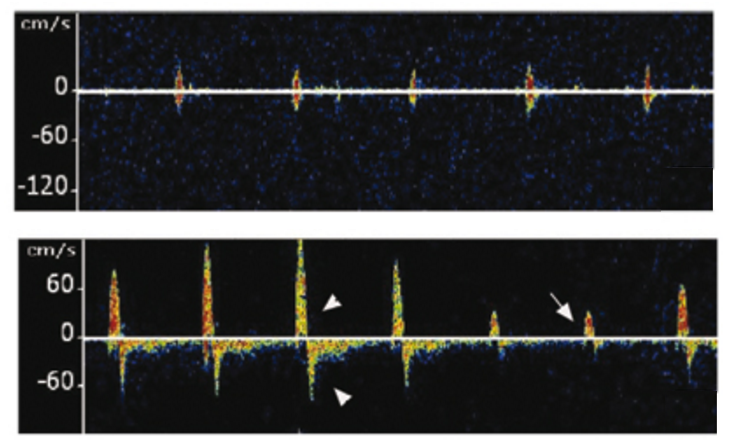

Neurosonography of the fetal brain, although based on similar principles, will not be discussed this article will focus on neonatal, pediatric, and adult indications for sonographic studies of the brain and cerebral vasculature, especially as it pertains to point-of-care ultrasound. "TCD" and "transcranial Doppler" will be used to refer to the combined 2D parenchymal imaging with or without the use of Doppler modalities.Īdvantages of TCD over its "conventional" predecessor include an ability to identify structural perturbations, including the presence of masses and/or midline shift, and the presence of sonoanatomical landmarks to guide placement of a pulsed wave Doppler gate 18. Some may refer to the imaging modality to be discussed below as transcranial color-coded duplex sonography (TCCS) and the non-imaging based continuous wave Doppler modality as transcranial Doppler (TCD) this article will not make this distinction, as the latter (non-imaging) modality will not be further discussed. Fellows also receive training in TeleStroke and TeleMedicine.Īvailable electives include Surgical ICU, Medical ICU, Cardiac ICU, interventional pulmonology, airway management and mentored academic projects.An extension of the non-imaging, continuous wave Doppler assessment popular among neurointensivists, the imaging of cerebral structures with grey-scale and superimposed color flow and spectral Doppler analysis is now possible using the same windows, techniques, and diagnostic goals. These include traumatic brain injury, cerebrovascular diseases, status epilepticus, neuromuscular emergencies, brain tumors, and infectious and autoimmune diseases.ĭuring this rotation, the fellow works closely with the acute stroke attending and residents for acute stroke cases that need to be evaluated for acute intervention. Neurocritical care rotations provide comprehensive training in management of patients with a wide spectrum of severe brain, spine and peripheral nervous system injuries and diseases. Fellows join weekly EEG case review conferences. Fellows also learn to interpret and apply invasive neuromonitoring (eg ICP, brain oxygenation, brain temperature) in the neuroICU. Continuous EEG, Evoked Potential, invasive neuromonitoring:įellows learn to interpret and report critical care continuous EEG, including interpretation of quantitative EEG trends.

Neurosonology with Transcranial Doppler Ultrasound (TCD) and Carotid Duplex Ultrasound Performance and Interpretationįellows get hands on experience in performing and interpreting TCDs, including for detection of vasospasm in subarachnoid hemorrhage patients.The comprehensive curriculum includes training in the application of neuromonitoring tools, including continuous EEG, invasive neuromonitoring (e.g ICP, brain oxygenation, intracranial EEG), bedside US, and TCD in the NeuroICU setting.įor more information on the fellowship and application instructions please contact Mia Falco. The fellowship provides training in management of neurologic emergencies, neurocritically-ill patients, and in-depth training in neuromonitoring. Billing, Insurance & Financial Assistance.


 0 kommentar(er)
0 kommentar(er)
